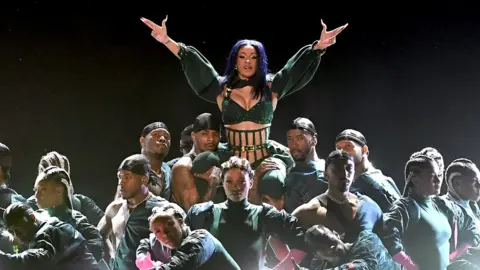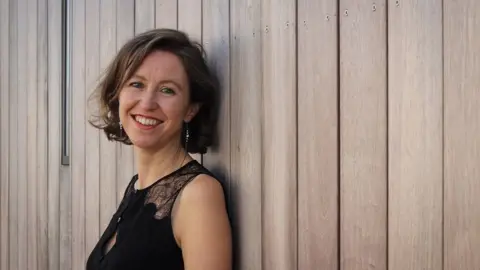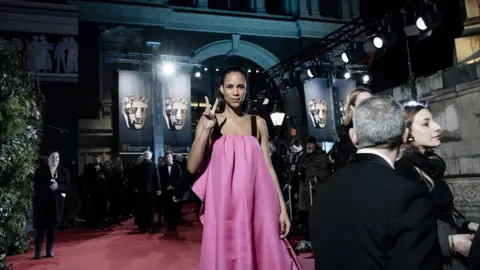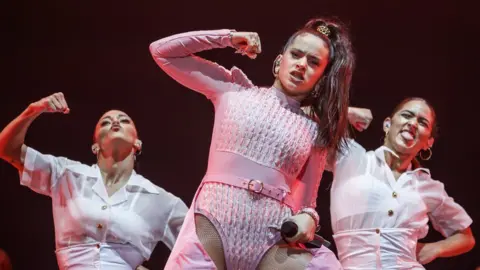50/50 gender balance pledge extended to more of the music industry
 Kevin Winter
Kevin WinterLast year, more than 190 festivals signed up to a pledge to achieve a 50/50 gender balance by 2020.
Seven months on, and the scheme is being extended into more venues, labels, orchestras and concert halls.
Vanessa Reed is the founder of Keychange and the CEO of the PRS Foundation, who fund musicians and emerging talent.
She was also named the third most powerful woman in the music industry by Radio 4's Woman's Hour programme, just behind Beyonce and Taylor Swift.
"We're opening up the pledge because we recognise the gender gap is an industry wide problem, it is not just about festivals," Vanessa told Radio 1 Newsbeat.
"We need to see a more balanced workforce.
 Ruth Kilpatrick
Ruth Kilpatrick"We know that it actually puts emerging female artists off if they are only being presented with men in the recording studio or men on the other side of the table when they are signing a record deal.
"Let's not forget the fact that in the recording industry only 15% of labels are majority owned by females and there are virtually no women in the recording studio."
She says festival and venue stages have to reflect the audiences.
"Otherwise we are just continuing to perpetuate a society in which only white middle class men have a say.
"We have got to a point now where everyone knows the value of diversity when it comes to any business success.
"In terms of recruiting new staff we know that people are looking at the values of a company now when they apply for jobs."
 Gareth Cattermole
Gareth CattermoleSixty organisations have signed up to Keychange including the Royal Opera House, English National Opera, Bella Union record label and the EartH music venue in east London.
"There has been a tradition of commissioning more male composers than female in the classical world," she explains.
"That is why we have encouraged orchestras, labels publishers, venues, concert halls to sign up."
She says it is all about making sure younger women can see it is possible to be a producer, label manager or headline a festival.
"I think we just need to really consciously shift those stereotypes that are restricting the way that both young girls and boys see their futures.
"This of course it is not specific to music.
"There are these deeply embedded prejudices that we need to get rid of because we are all talented, it is about opportunity, it is the opportunity that isn't everywhere the talent is."
 Xavi Torrent
Xavi TorrentThe scheme has been met with some resistance in the industry from those who believe it is an impossible task. One argument is that if there isn't enough female talent to chose from.
"I think we all need to work together and say there are loads of talented women who deserve exposure, deserve jobs or deserve slots on line ups," she says.
"We just need to rethink the way we recruit people and the way we decide on which talent we are going to put on which stages."

